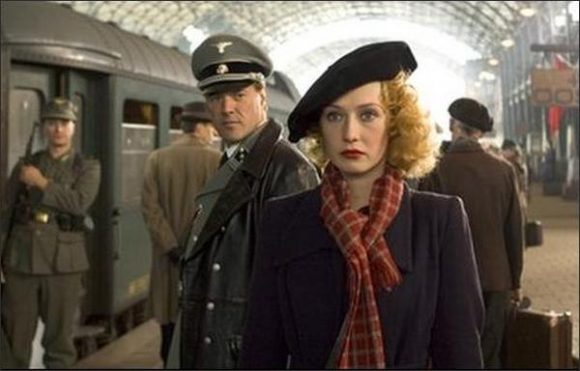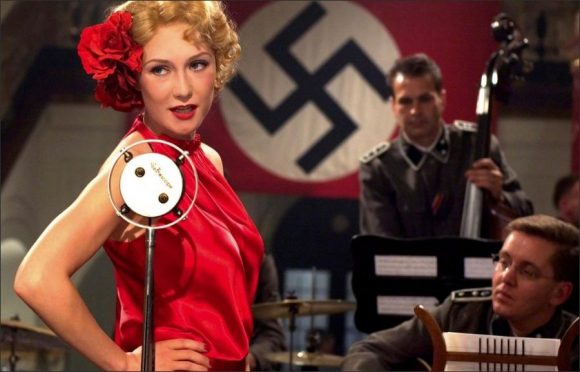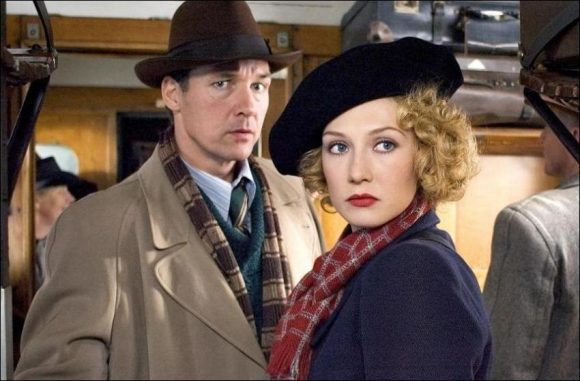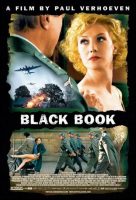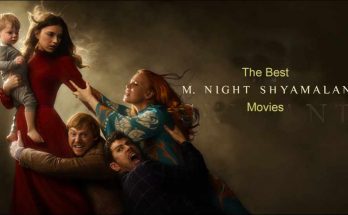Taglines: To fight the enemy, she must become one of them.
Heaven knows, no one expects subtlety from Paul “Showgirls” Verhoeven, but sitting through his cheesy new soft-porn second world war resistance drama is like discovering a particularly humourless episode of ‘Allo ‘Allo on satellite – one with an awful lot of contrived toplessness. The leading lady here manages to remove her clothes as often as the eponymous heroine of the Sun’s notorious George and Lynne cartoon.
It’s a dire and overlong period movie that manages to display a good deal of prurience and misogyny, the climax of which arrives when the blonde leading lady – wrongly condemned as a Nazi collaborator – has a hundredweight of human faeces tipped over her from a vast bucket. She is, of course, topless while this is happening.
Every cliche is dragged out. There are steely-eyed Nazis, resistance workers and blonde spies. Carice Van Houten plays Rachel, a beautiful, Jewish and mainly topless resistance worker in occupied Holland. Rachel goes undercover and winds up singing in cabaret while the SS man who killed her father accompanies her on the pianoforte. Yikes. It might have been brilliant with a little more flair and dramatic bite. Instead, it is crass, vulgar and flatulent.
Paul Verhoeven’s supremely vulgar romp “Black Book” takes off in September 1944. A young Jewish woman, the unsinkable Rachel Stein — played with ferocious energy by the Dutch actress Carice van Houten — has been squirreling herself away with a Christian farm family when an American bomber blows their house to smithereens.
Not one to let an Allied payload cramp her style, Rachel picks herself up, dusts herself off and flings herself into the open arms of a passing swain, the first in a series of dashing rescuers who will accompany her through tangles of intrigue and steamy romances in a Holocaust story like few others.
Having first earned international attention with crudely effective Dutch entertainments like “Soldier of Orange,” Mr. Verhoeven went Hollywood, starting in the late 1980s, with increasingly slicker, steadily less effective entertainments like “Basic Instinct” and “Showgirls.” “Black Book” is the first film he has shot in his native country in more than 20 years, and it shows in its vigor, in the strained seams of its construction and in its willful irreverence toward its subject — particularly its insistence that there are no obvious villains, even in the middle of a Nazi occupation. Written by Mr. Verhoeven and his sometimes screenwriter, Gerard Soeteman, “Black Book” encompasses the best and very worst of its director’s signature pulp brutalism, which means it’s pretty much a hoot.
Despite the non-Hollywood genesis of the project, “Black Book” relies on the same formula that has fueled Mr. Verhoeven’s big-studio career, namely frenzied sex and violence, bodies thrashing with the ecstasy of coitus and thrashing into paroxysms of death, sometimes at the same time. The thrashing rarely lets up in “Black Book,” a film in which a Jewish woman’s body is saved from the off-camera death camps, gas chambers and ovens to become a site of negotiation, a means of survival and an erotic spectacle. Abused and misused, stripped and stripped again, Rachel — named, it’s worth noting, for the mother of Israel — survives by masking that body with a putatively Aryan disguise. She also falls for a Nazi.
Not any old Nazi, but the head of the Gestapo in The Hague, where Rachel has landed after fleeing an ambush that claims her brother and parents. Now working for the resistance, Rachel signs up for the ultimate Mata Hari assignment and agrees to bed Ludwig Müntze (Sebastian Koch) so she can uncover Gestapo secrets. She does that and more. After dyeing her hair a brassy blond, Rachel insinuates herself into the superdashing Nazi’s confidences and, soon enough, his bedroom. It takes just one glance at the top of her head with its creeping dark roots for Müntze to guess the truth. Grasping her naked breasts in her hands, Rachel pleads her case with Shakespearean gravitas, “Hath not a Jew, er, eyes?”
Yowza! In truth, Rachel — now called Ellis — asks of her breasts and then her hips, “Are these Jewish?” Seduced by the pertness of her argument or perhaps that of her physicality, attractively framed by black garters and stockings, Müntze answers her question silently but firmly. Taken in by his sensitivity and, no doubt, his decision to spare her life — during one pillow talk, this nice Nazi shares how his wife and children died in an Allied bombing — Rachel finds herself forced to navigate an increasingly ticklish line between duty and desire. It’s a line made all the more wobbly by the pileup of plot complications that Mr. Verhoeven wildly races through, giving the film the frantic feel of an old-time movie serial on methamphetamine.
Mr. Verhoeven’s cartoon realism, accentuated by the sitcom lighting, the primitively staged gun battles, the gnashing teeth, whizzing bullets and thundering score, has its hard-surface appeal. Designed for distraction (the frequently timed gunfights suggest as much), “Black Book” works only if you take it for the pulpiest of fiction, not a historical gloss, its stated claims to “true events” notwithstanding. It also helps if you don’t worry about its loosey-goosey moral relativism, which, among other things, involves one character’s stating that at least some of the Dutch are no better than the Nazis, a point that Mr. Verhoeven tries to enforce by reconfiguring an outrage from Brian De Palma’s horror classic “Carrie.” Dumping a bucket of human feces on your heroine certainly makes a point, however foully.
Given the signal-to-noise ratio here, it’s too bad that Mr. Verhoeven doesn’t spend more time on the film’s most provocative image, which shows a Holocaust survivor tucked behind a barbed-wire fence on an Israeli kibbutz in 1956 and indicates that Jewish survival remains a never-ending story.
Black Book (2007)
Directed by: Paul Verhoeven
Starring: Carice van Houten, Thom Hoffman, Halina Reijn, Sebastian Koch, Christian Berkel, Waldemar Kobus, Michiel Huisman, Derek de Lint, Peter Blok
Screenplay by: Gerard Soeteman, Paul Verhoeven
Production Design by: Wilbert Van Dorp
Cinematography by: Karl Walter Lindenlaub
Film Editing by: James Herbert, Job ter Burg
Costume Design by: Yan Tax
Art Direction by: Roland de Groot, Cornelia Ott, Maarten Piersma, Wilbert Van Dorp
Music by: Anne Dudley
MPAA Rating: R for some strong violence, graphic nudity, sexuality and language.
Distributed by: Sony Pictures Classics
Release Date: April 4, 2007
Views: 263
